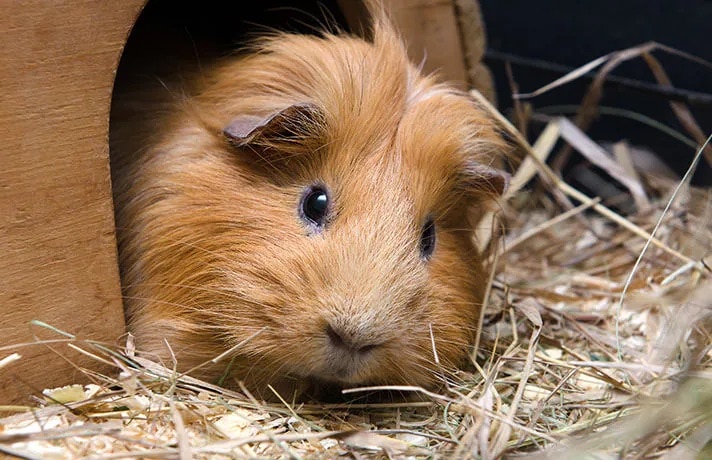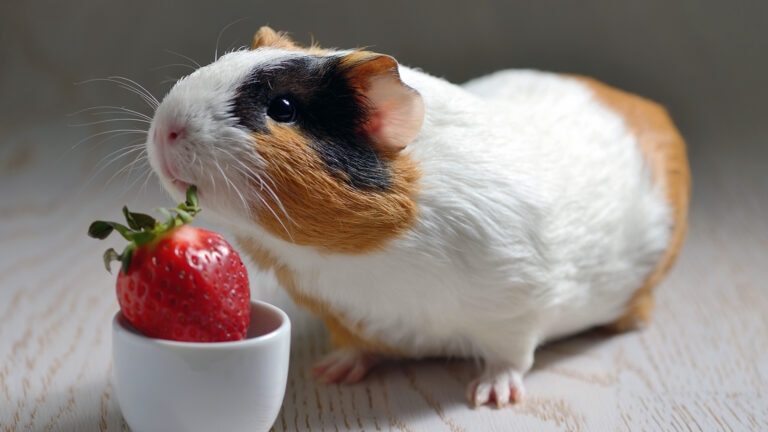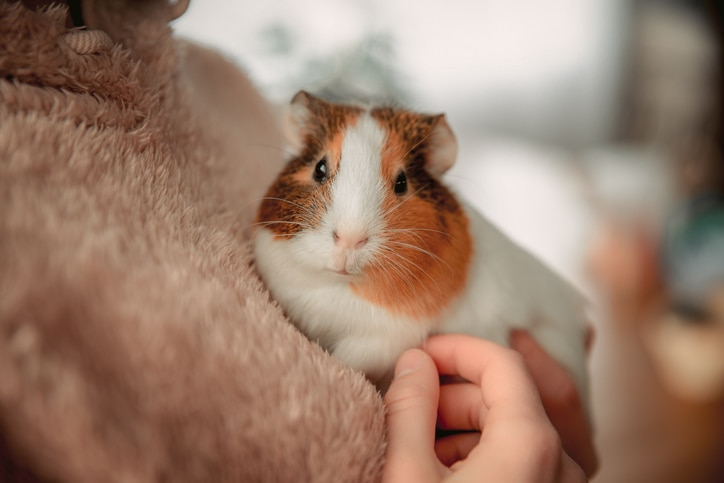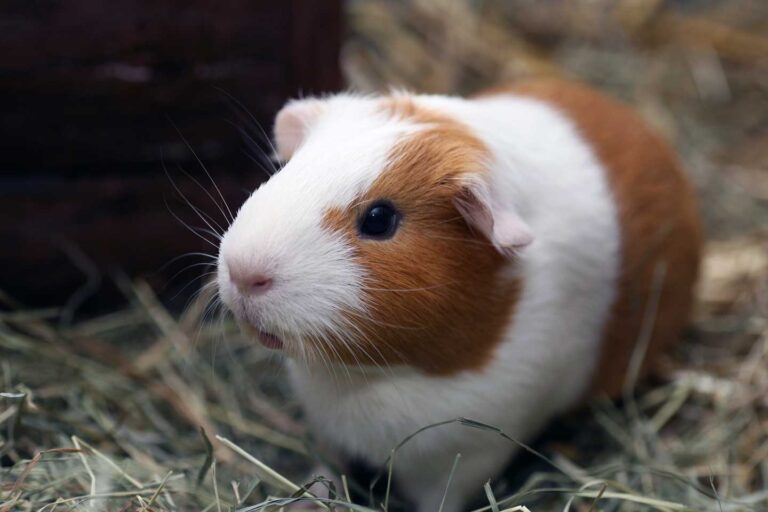Guinea Pig Stops Eating or Moving

Photo by DevMarya/iStock/Thinkstock
Q: My guinea pig isn’t eating, isn’t moving much and rarely has a bowel movement. When he does have a bowel movement, it’s diarrhea. He is extremely skinny and weak. He was fine just a little while ago. I’m really worried, and I’m not sure what I can do for him. I plan to take him to the vet as soon as I can, but is there anything I can do for him in the meantime?
A: It does sound like your guinea pig is very, very sick. When a guinea pig does not eat, no matter what caused the anorexia, it also develops liver disease called hepatic lipidosis. So, on top of whatever is causing the disease, you now have liver disease to contend with in this little guy.
Not eating, not moving and decreased fecal production are all considered non-specific signs of disease. What that means is that any disease can lead to the signs you are seeing in your guinea pig. This could be dental disease, liver disease, kidney disease, cancer, toxins, infection — the list just goes on.
At the veterinarian’s office, your vet will do a compete physical examination and will likely suggest blood tests and radiographs. He or she may even want to do a stool examination, because you are reporting diarrhea that can quickly debilitate a guinea pig.
What is most important is to get fluids and calories into your guinea pig until you can visit your veterinarian. Do everything you can to encourage drinking. Make sure the water bottle or bowl is always full. Consider using a solution like Pedialyte, which is palatable and contains extra nutrients. You also need to get calories and fiber into your guinea pig. Call your veterinarian’s office and ask if they have any products in stock that you can use. Many nutritious and balanced diets are now available for small mammals in need of calories and fiber. Your veterinarian may carry them or you may also be able to find some of these in pet food stores.
But the best advice is to take your guinea pig to the veterinarian much sooner than later. Guinea pigs that lose weight, don’t eat and don’t move are very, very sick. The longer you wait to take him in, the worse his prognosis. Rather than trying remedies at home, see the veterinarian right away.











